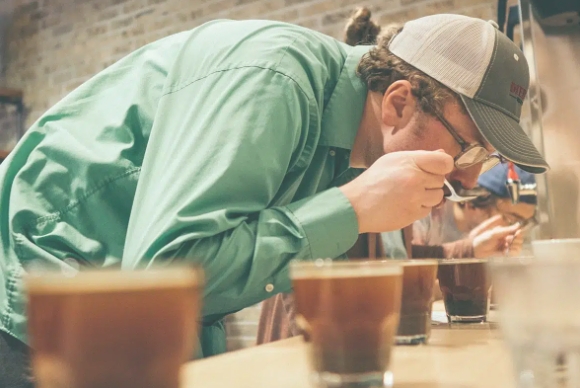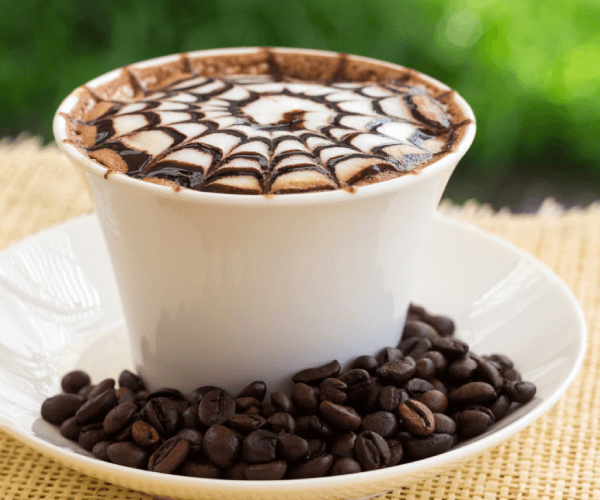
In recent years, specialty coffee has gained traction all over the world. According to a 2022 study, around 60 million people consume specialty coffee in the United States alone. But what is specialty coffee, and what makes it so special? After all, it has the word ‘special’ in it. Read this guide to learn a bit more about what specialty coffee is and why it really is such a special drink.
What is specialty coffee?
Specialty coffee refers to high-quality coffee beans that are produced using specific methods and traded in a sustainable and ethical manner. The Specialty Coffee Association (SCA) has established a general set of standards for a coffee bean to be considered specialty grade. These standards aren’t strict, but most specialty coffee adheres to them. They include:
- Arabica Beans: Specialty coffee are typically made from 100% Arabica beans. This type of coffee bean is known for its superior flavor and aroma compared to Robusta beans (though there are exceptions where Robusta could be considered specialty coffee).
- Altitude: Specialty coffee beans are usually grown at high altitudes, typically between 3,000 and 6,000 feet. This altitude range provides the ideal conditions for growing high-quality beans with unique flavor profiles. This has been changing recently too though with climate change and the advent of many emerging low-altitude farms.
- Processing: Specialty coffee has great care that is taken during processing. The process from picking to drying is meticulous to ensure the highest quality in the beans and ensure they are free of defects. Washed, natural, or honey processes are common in specialty—though recently there has been an explosion of experimental methods (like the Koji process that uses fungi spores on the coffee cherries!).
- Cupping Score: Specialty coffee is evaluated using a standardized cupping process to assess its flavor, aroma, body, and aftertaste. The coffee must achieve a score of at least 80 out of 100 points to be considered specialty grade.
- Trade Practices: The best specialty coffee is traded through transparent and fair practices that support the livelihoods of small farmers and ensure sustainable farming practices. This includes paying fair prices for the beans and investing in the long-term sustainability of the coffee supply chain.
Put simply, it is a higher quality coffee compared to ‘regular’ coffee and undergoes rigorous quality checks at each stage of the coffee production process. Several delicate and precise steps in this process ensure the quality and let you experience a great cup of coffee.
What is the difference between specialty coffee and commodity coffee?
The primary difference between specialty coffee and commodity coffee lies in their quality, production, and trade practices. Specialty coffee is produced using high-quality beans that are carefully cultivated, processed, and roasted to achieve unique flavor profiles. The focus is on creating a high-quality product that offers a distinctive taste and aroma. In contrast, commodity coffee is often produced using lower-quality beans that are mass-produced using industrial farming techniques. The focus is on producing large quantities of coffee at a low cost, often sacrificing quality for quantity. Additionally, specialty coffee is traded through fair and transparent practices, while commodity coffee is often traded through opaque and exploitative practices that often result in unfair wages and poor working conditions for farmers. Ultimately, specialty coffee offers a more sustainable and ethical alternative to commodity coffee, while also offering a superior coffee experience.
How is specialty coffee classified?
Specialty coffee beans are the best of the best, which means the top 10% of coffee beans earn the title of specialty. It is generally agreed that Robusta coffee beans can’t achieve the status of specialty coffee. Only Arabica coffee beans qualify as ‘specialty’ coffee because they have high acidity levels and delicate notes, while Robusta has bitter notes.
Green and unroasted coffee beans must meet certain qualifications to be classed as specialty coffee. Green coffee grading involves visual inspection and cupping. On the cupping table, it must achieve a score of 80 or higher on the rating scale set by SCA to qualify as a ‘specialty’ coffee.
Specialty Coffee Grading – Q Grade Score Sheet
| Score | Grade | Is it Specialty? |
| 90-100 | Outstanding | Yes |
| 85-89.99 | Excellent | Yes |
| 80-84.99 | Very good | Yes |
| >80 | No grading or below Specialty coffee | No |
THE BOTTOM LINE
Specialty coffee refers to coffee beans that are of a higher quality and are produced under strict standards of cultivation, processing, and roasting. These standards ensure that the beans are of the highest quality and have unique flavor profiles that are not found in mass-produced coffee. Specialty coffee is important because it promotes sustainability, fair trade, and supports small farmers and local businesses. It also offers consumers a unique and enjoyable coffee experience, with a focus on flavor and origin, rather than just caffeine content.
